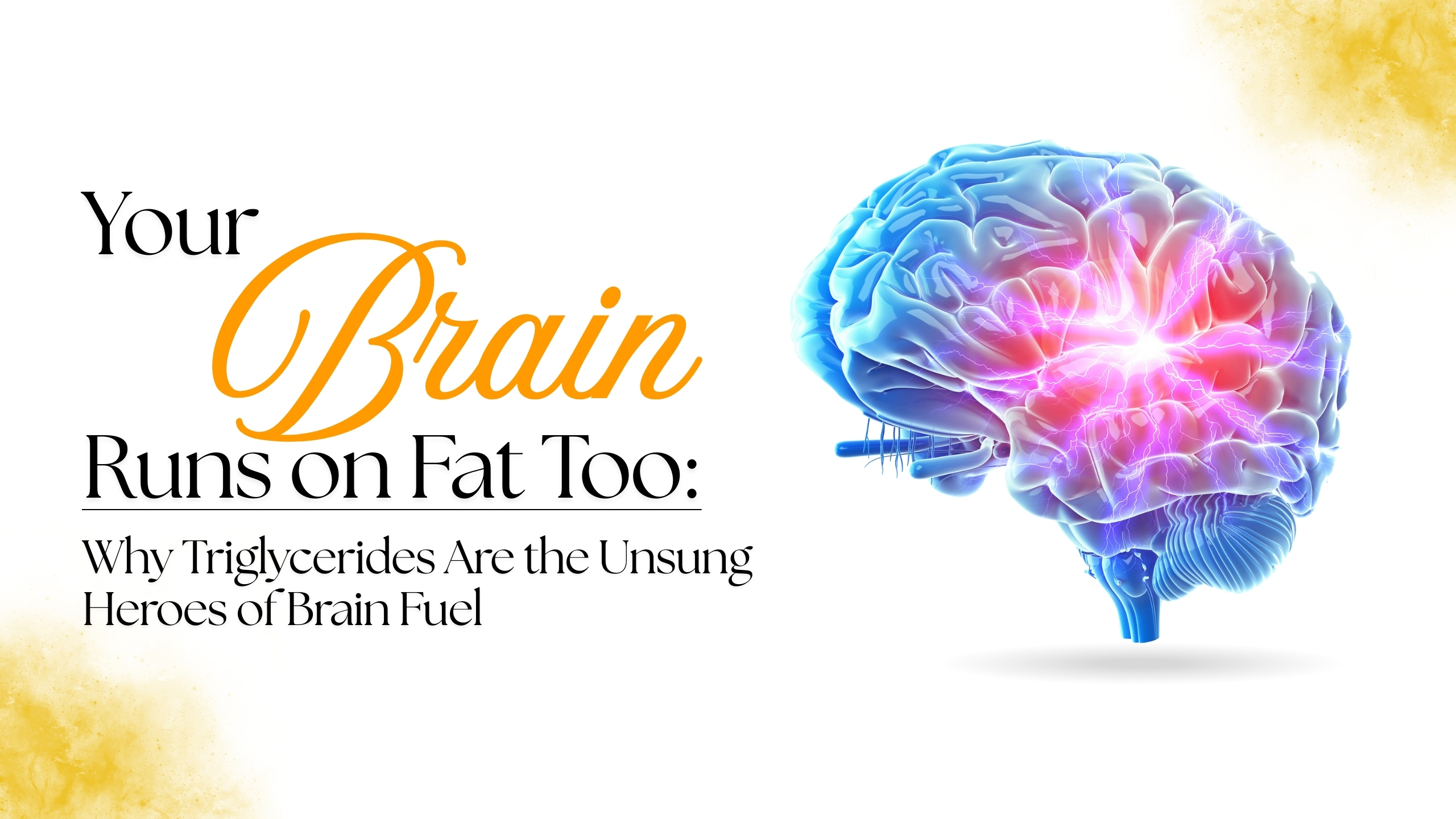Did you know your brain isn’t just a sugar junkie?
That’s right. While we’ve long believed that glucose (aka sugar) is the brain’s ride-or-die fuel, cutting-edge research says otherwise. Turns out, your brain is way more resourceful. It has a sneaky backup plan: fat. More specifically, triglycerides stored in little fat bubbles inside your brain cells.
And no, this isn’t just nerdy science stuff. This could change the way we think about focus, energy, fasting, aging, and even brain diseases.
First Things First: What Are Triglycerides Doing in My Brain?
Triglycerides (TGs) are a type of fat your body stores for future energy needs. But guess what? Your brain also tucks away these fats in small storage bubbles called lipid droplets (LDs). These droplets act like emergency batteries.
Here’s where it gets interesting: When your brain is working overtime (think deep focus, solving problems, or even low glucose), it taps into those droplets for a quick energy boost.
The magic happens thanks to an enzyme called DDHD2 (your brain’s personal fat-fueled energy switch).
DDHD2: The Enzyme That Keeps You Going
DDHD2 breaks down triglycerides into fatty acids, which are then burned in the mitochondria (your cells’ powerhouses) to create ATP (aka pure brain energy). It’s like turning stored fat into rocket fuel for your neurons.
If DDHD2 isn’t working? Your brain struggles. In fact, researchers found that blocking this enzyme in mice led to extreme fatigue and even a torpor-like state (basically, deep energy-saving mode). They got cold, sleepy, and slow.
The Brain-Fat Connection: A Step-by-Step Breakdown
- Brain stores triglycerides inside tiny fat droplets.
- When sugar is low or brain activity is high, energy demand spikes.
- DDHD2 breaks down those triglycerides into usable fatty acids.
- Fatty acids head to the mitochondria, where they’re converted into ATP.
- Your brain keeps functioning even when sugar is scarce.
Yes, your brain has a Plan B. And it’s powered by fat.
Why This Is Actually a Big Deal
Brain fuel flexibility = better performance during stress, fasting, or low-carb diets.
Neuroprotection: Some brain conditions like hereditary spastic paraplegia are linked to DDHD2 issues. This insight could unlock better treatments.
Healthy aging: As glucose access in the brain drops with age, fat-based energy could keep cognitive decline at bay.
Biohacking & mental clarity: If you’re into intermittent fasting, keto, or low-sugar lifestyles, your brain might already be tapping into this fat-fueled system.
The Takeaway: Fat Isn’t the Villain. It’s Your Brain’s Secret Weapon.
This new research flips the script. Fat isn’t just a backup plan, it’s a vital energy reserve, right there in your brain. And it’s ready to go when you need it most.
Whether you’re deep in thought, running on empty, or skipping lunch for a meeting, your brain knows how to keep the lights on.
So the next time someone says, “Your brain runs on sugar,” you can hit them with the truth: It runs on fat too.


